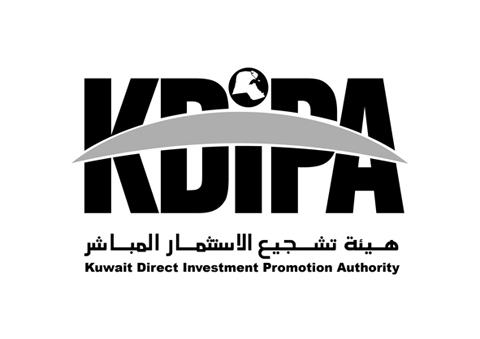Kuwait Investment Forum showcases dynamic projects pipeline
KUWAIT: Under the patronage and presence of His Highness the Amir Sheikh Sabah Al-Ahmad Al-Jaber Al-Sabah in March this year, the second edition of the Kuwait Investment Forum (KIF 2018) was held, which shed light on Kuwait's dynamic market, and promoted a plethora of lucrative investment opportunities to the global investors network.
KIF 2018 announced a series of projects across diverse sectors of the economy - from infrastructure development, renewable energy, to the digital transformation initiatives of the country. Furthermore, path-breaking announcements were made to boost the status of Kuwait as a financial and capital market hub. These not only underpin the national vision 2035 - New Kuwait - but also reiterate the leadership's strong resolve to focus on economic diversification to drive sustainable growth.
This is exemplified in the impressive Northern Gulf Gateway, an integrated flagship project that will identify the "Future Kuwait", and will open the doors for mega investment opportunities for global investors. The Northern Gulf Gateway is initially billed to attract $150 to 200 billion in foreign direct investment for developing 20 per cent of the project - a significant step that will drive the economy's all-round economic diversification and growth. It is intended to also create over 300,000 to 400,000 knowledge-based jobs for the youth, and is positioned to welcome 3 to 5 million visitors annually, boosting the tourism, hospitality and leisure sectors. Besides a touristic destination, it will further serve as an economic catalyst by integrating various competitive specialized zones: an educational hub, a world-class medical facility, a center for smart industry and future technologies, a financial hub with a stock exchange, and a port of 8 million TEU capacity.
Other mega opportunities in the infrastructure sector that will boost Kuwait's economy include the ongoing construction of the new terminals at Kuwait International Airport, scheduled to be completed in 2022, with an annual capacity of 25 million passengers that will achieve additional annual revenues of $300 million. This project is expected to create 12,000 job opportunities for engineers and skilled workers especially young Kuwaitis.
Kuwait's focus on energy sector diversification was also highlighted at the Forum, which opens up new investment opportunities. It was announced that Al-Shaqaya Renewable Energy Complex aims to increase the capacity available for power plants with total completion rate of the project at 80% and due for completion in 2022. The Clean Fuels Project, an overhaul of the Mina Abdullah and Mina Al-Ahmadi refineries, was also highlighted leading to an increase in oil production and development of reserves with returns on investment on the project expected at 11.5 per cent.
Serving Kuwait's digitization transformation, the Communication & Information Technology Regulatory Authority (CITRA) is spearheading several lucrative initiatives in the ICT sector, driving the upgrade of e-government services to international standards, and encouraging ICT startups led by young Kuwaiti entrepreneurs.
The Al-Nayeem Industrial city, focuses on shifting from creating industrial zones to smart integrated cities, that complements the goals of Kuwait National Vision 2035. The Al Nayeem Industrial City will focus on diversifying the industrial base, bringing high-end technology and creating higher value-add. It will be an innovative, green city development, powered by solar energy, and with innovative smart buildings.
A new Cargo City at Kuwait International airport (First phase), built on 3 million square meters, is considered to be one of the most important projects in the development plan, and will be the largest cargo city in the Middle East enhancing Kuwait logistics and storage capabilities.
Kuwait is also seeking to develop its tourism sector. The country has the biggest internal domestic demand and the largest outbound expenditure per capita on travel and tourism in the entire Gulf region. Developing a national tourism sector is a key pillar of the New Kuwait, and the country is currently reaching out to the private sector to join hands in several ambitious projects.
KIF 2018 also highlighted several initiatives to transform the banking system, and promote advanced financing with several new investment channels. In this, Kuwait Bourse and Capital Markets Authority (CMA) play a central role with a focus on diversifying investment tools and in protecting the rights of investors. CMA announced at the Forum implementing the second phase of reforms, with new products and new listing rules mooted. Three more phases of reforms are being planned this year and next, making Kuwait's capital market even more attractive, in addition to stimulating liquidity. In June 2018, the global index compiler MSCI said that it is considering the reclassification of Kuwait from Frontier Market to Emerging Market status in its annual review next year, even as FTSE Russell reclassified the nation as an Emerging Market in 2017, promoting an expected inflow of $700 million from investors.
With multibillion dollar investments in multi-sector projects highlighted at the Forum, Kuwait is well-positioned to serve international investors' appetite in mutually rewarding growth sectors.











